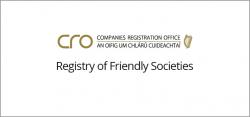
Since the New Year KomSec Limited has experienced a sustained level of increased queries from UK based organisations with interests in Ireland, looking for advice on the choices available to them post-Brexit – Branch Registration or Company Incorporation.
Branch Registration – of interest to some as once registered a Branch has fairly basic statutory filings. Also, Branches file the same financial statements as those filed in the country of origin (i.e. country where company registering Branch was incorporated).
Downside for some is an unease at having to appoint an Authorised Person (resident in the State) representing the Branch where he/she can have as much control over the Branch as any Company Director.
Company Incorporation – of interest as once incorporated the company only needs to either have one individual Director resident anywhere within the EEA or a Bond (S.137 Companies Act 2014). Companies can apply for exemption from the residency rule/Bond on the grounds that the company has “a real and continuous link with one or more economic activities being carried on in the State”. This statement must be supported by the Irish Revenue Commissioners stating it has reasonable grounds to believe the company has such a link.
Downside for some is that once set up the company has a life of its own requiring it to make regular annual filings throughout its corporate history, including preparing and filing financial statements specific to the Irish company.
Which option is ultimately selected will most likely be driven by tax advice. To date, KomSec Limited has found client interest split fairly evenly between both types of entities. To explore options available for your specific organisation contact KomSec Limited directly.
More Detail...









